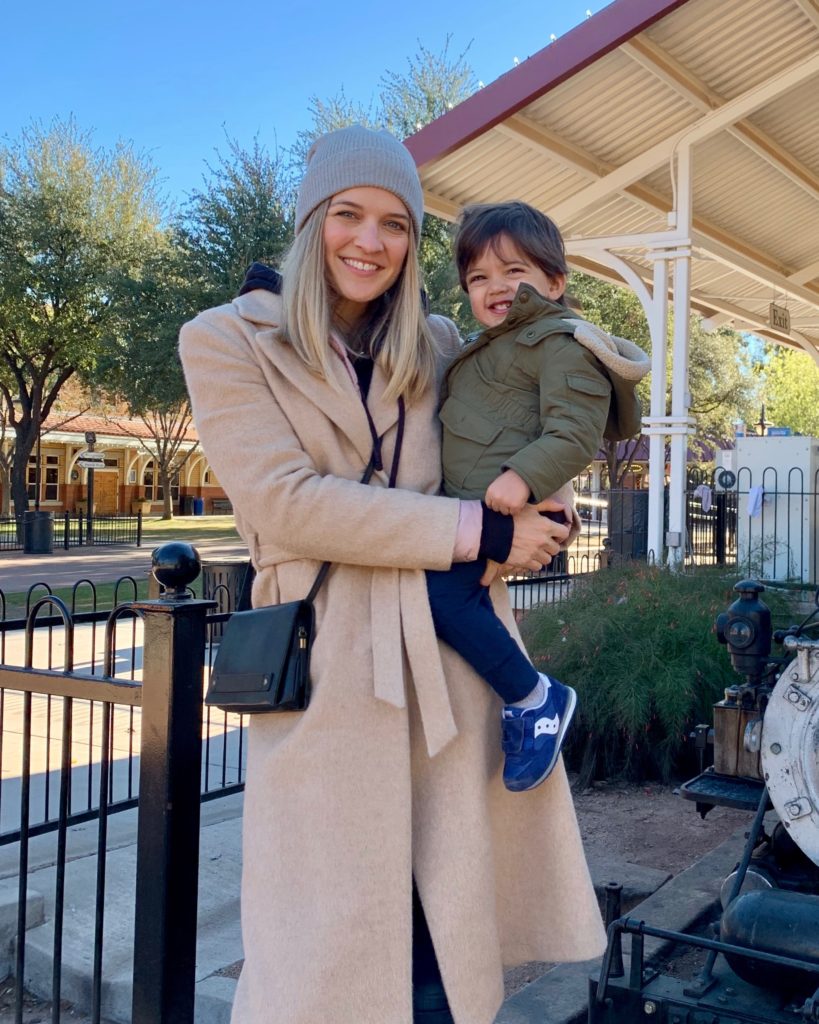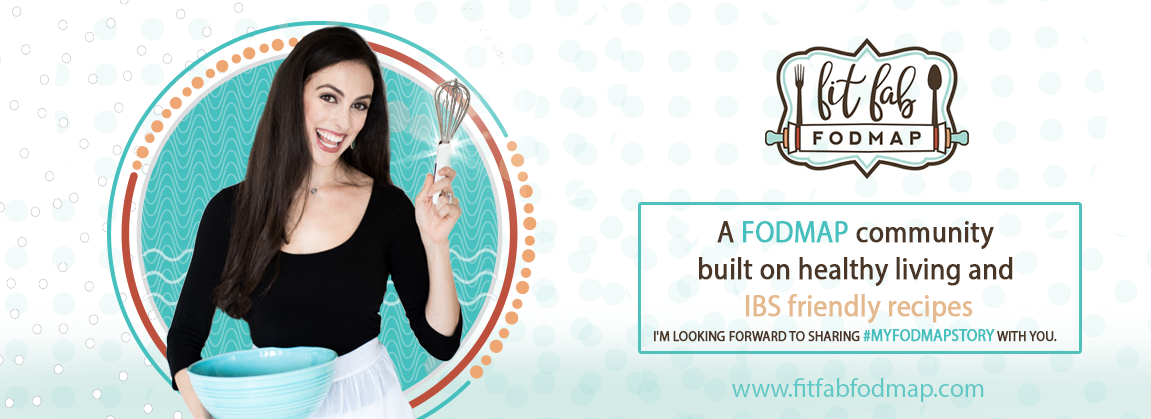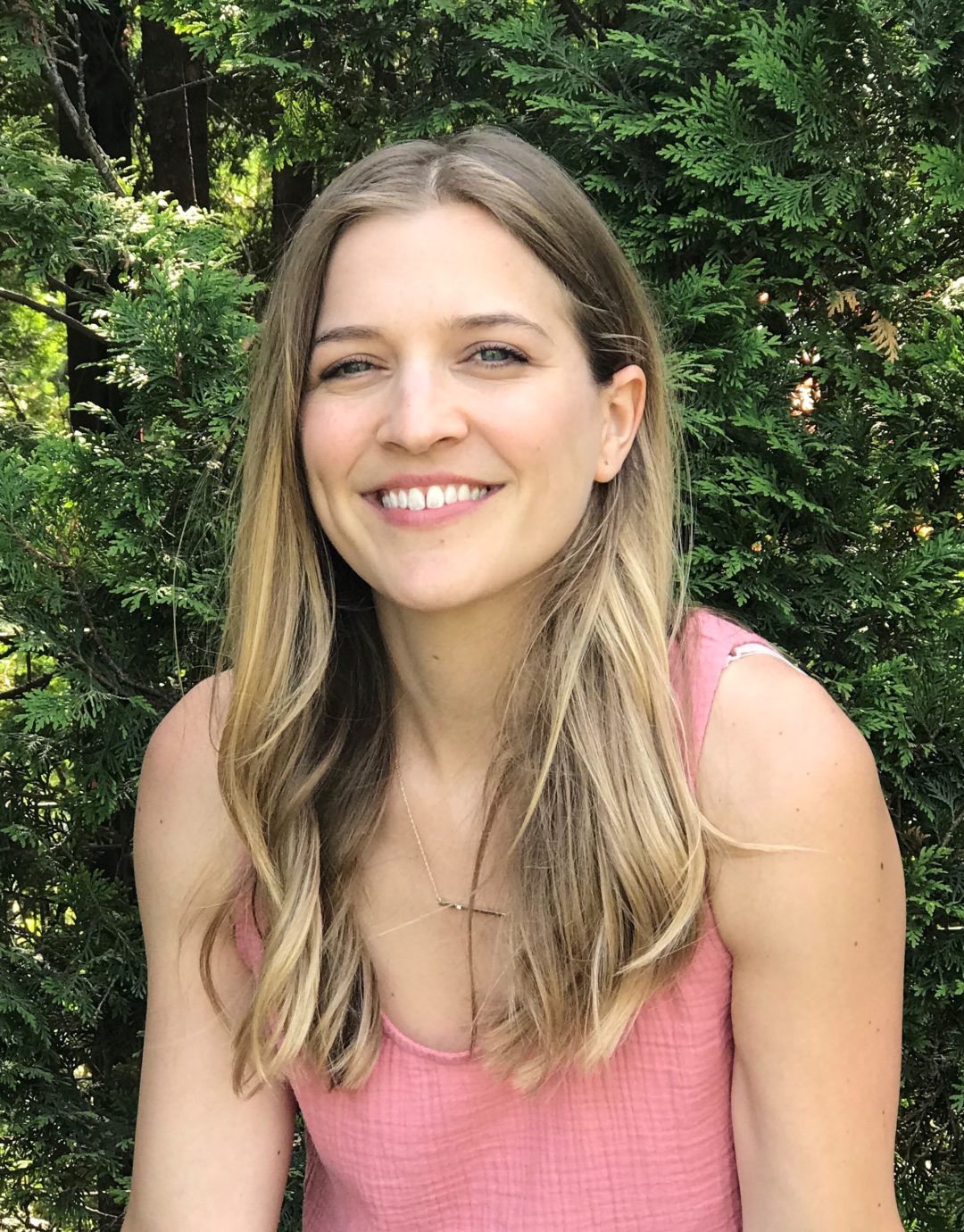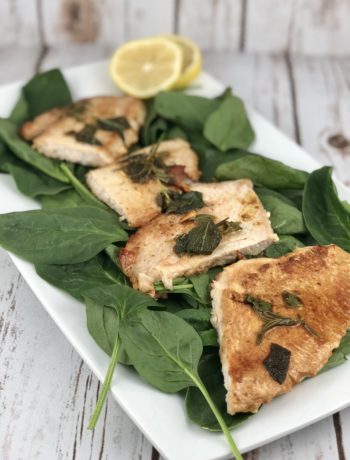I am so excited to share my interview with Rachelle Mallik, MA, RD, LDN with all of you. Not only is she an expert on reproductive nutrition but is also well versed in the low FODMAP diet. Rachelle and I connected a few months ago through the ladies at FODMAP Everyday. The timing of us virtually meeting could not have been better as I had recently found out I was pregnant and was dealing with my own gastrointestinal issues (morning sickness anyone?!). I could not imagine a better timing to talk to someone who understands nutrition, fertility, pregnancy, postpartum and breastfeeding. I hope you enjoy my interview with Rachelle as much as I did!

Rachelle, you have spent your career focused in reproductive nutrition at Weill Cornell Center for Reproductive Medicine and Infertility in New York City, Australia and now currently running your own private practice in Chicago. You have worked with countless women facing fertility challenges. What have you found to be the biggest misconceptions when it comes to fertility and nutrition from your patients?
I’ve found there’s either of lack of awareness that nutrition affects fertility, or that people put way too much pressure on
As someone who went through IVF and was lucky to have a successful transfer the first time, I know how important it is to have a positive attitude and a support system in place. Besides nutrition, are there self-care tips you suggest for your clients?
- To remember that nutrition is not just what we eat, but how we eat. Eating should be a nourishing, satisfying experience – not just a checklist of “shoulds” (eg I should be eating less red meat (or more!), I should be eating only organic produce, I should drink less coffee). On a related note, remember nutrition is one piece of the conception puzzle – you are not solely responsible for the outcomes.
- Try to reframe negative thoughts and use kind words when talking to yourself like you would say to a friend or loved one.
- Aim for one self-care activity each day of your IVF cycle, like going to bed an hour earlier, going out for a nice dinner, taking a leisurely walk in a park, reading a fun novel. Dealing with infertility is stressful, so try to make time for self-care.
You have an ADORABLE toddler whom I absolutely love seeing on your social media. What were you the most shocked to learn in regards to your own pregnancy when it came to nutrition and medical support?
Aw thank you! I was shocked to learn that most of the diet and lifestyle recommendations for nausea and vomiting of pregnancy (NVP, aka morning sickness) are not based on scientific studies. While they may provide some relief, it’s a lot of trial and error. Also, I was surprised with how little research is done on supplements (eg herbs, collagen, protein powders, etc) during pregnancy as well as lactation. As a practitioner, I look to the evidence first, and then evaluate what things are unlikely to cause harm before making recommendations or giving the ok to certain dietary supplements.
There is so much information out there about what foods to eat and not eat while pregnant. What are your top foods that you recommend for pregnant mommas to add to their diet? What about those dealing with the dreaded morning sickness and worried about not getting enough nutrients?
Fish and seafood, specifically low-mercury options like skipjack tuna, salmon, cod, and sardines. Besides providing protein, they’re good sources of omega-3 fatty acids, like DHA which are crucial for baby’s brain development. (For vegan mamas who do not eat fish, you can take algae-derived DHA supplements.) Seafood is also rich in iodine, an important nutrient for thyroid health and fetal development. I also highly recommend dark leafy greens, which are rich in folate, and plant-based sources of iron and calcium. Plus both seafood and leafy greens are low FODMAP!
Oh morning sickness – such a misnomer, since it can strike any time of day! And what a coincidence you ask since I’ve actually been struggling with morning sickness recently, as I did in my first pregnancy. It’s a real challenge to eat the nutritious meals that I enjoyed just a few weeks ago. First of all, try not to worry too much, especially if you were eating well prior to pregnancy since an embryo/fetus will take what it needs from a mother’s nutrient stores. Keep taking a prenatal vitamin (a gummy vitamin without iron is sufficient in the first trimester if needed), eat small meals throughout the day so as to avoid being overly hungry or full (which can both trigger nausea), and try to include some protein with meals and snacks. Adding protein can help with nausea more than just plain carbohydrates (for example, whole grain toast with peanut butter or cheese and crackers). Also, having someone else cook is helpful! It’s tough to give specific food recommendations because what sounds good to one woman may make another gag, or can vary for the same woman day
I recently read that a woman’s food and nutrition intake is just as important postpartum as it is while pregnant especially if she is breast feeding. What foods do you suggest women stay away from as well as add to their diet after the baby?
Absolutely. If you are exclusively breastfeeding or pumping, you’re still the sole source of nutrition for up to six months. You may even feel hungrier as breastfeeding is estimated to require more calories than pregnancy. Many of the foods I recommend for pregnancy I recommend for breastfeeding as well. Even though food safety precautions are less strict than in pregnancy, continue to practice good food safety practices at home (washing hands before cooking/eating, cooking foods thoroughly, etc).
Note – if you choose not to or cannot breastfeed, nutrition is still important to help heal from birth and recover from pregnancy.
Stay away from herbs in supplemental quantities unless specifically recommended by a healthcare provider (as mentioned above, many lack safety studies in pregnancy and lactation). I generally recommend sticking to 1-2 cups of coffee a day, as is recommended during pregnancy. Many women can safely drink more than
What would your best piece of advice be for new moms who are about to have a baby? Has this advice changed since having your own child?
Accept help when it’s offered, and ask for help when you need it! And yes, I practice what I preach.
We can’t forget about the FODMAP diet! You spent time treating patients in Australia where the FODMAP diet was actually founded. When did you first hear about the diet? Did you start implementing it with your patients right away?
I first heard the term low FODMAP diet when I was living in Melbourne, Australia in 2013! I had been diagnosed with IBS in 2009 when I was living in New York and the GI doctor who I met with gave me a handout with a list of foods to avoid – I can’t remember exactly what was on it and it didn’t mention the word FODMAPs, but I’m pretty sure there were some FODMAP foods listed on it. Frankly, I never made any major dietary changes at that time (except for avoiding coffee) since my symptoms were stress-related. Yes, I worked with a few clients in Australia, teaching private low FODMAP cooking classes. It wasn’t until I returned to the States and got more training that I started doing medical nutrition therapy with the low FODMAP diet.
Now just for fun, if you could invite 3 dinner guests, dead or alive, who would you invite?
Ooh I’ve never been asked this question! Hm, tough decision but I’ll go with Mindy Kaling, Amy Schumer and my great-grandmother Sonia Zuckert Bates. The first two are funny, smart women and I think it would be fascinating to chat about current issues with them. As for my great-grandmother, a Ukrainian-Jewish immigrant with a very interesting life story, I’d love to ask her questions that I wouldn’t have thought to ask when I was a child or teenager.
Interested in working with Rachelle?
Schedule a complimentary discovery call at rachellemallik.com. Rachelle works with clients virtually, via a HIPAA-compliant web-based platform.
Local to Chicago? Rachelle is co-hosting several upcoming events!
- Wednesday, May 29th: Nutrition for Postpartum & Breastfeeding Wellness, Monica + Andy
- Thursday, May 30th: Perinatal Fitness + Nutrition Event, Pilates + Coffee
- Sunday, June 2nd: Perinatal Yoga + Nutrition Workshop, Coconut Yoga
P.S. Stay tuned: we are doing an awesome three part article series together in collaboration with FODMAP Everyday. You can find the first article about Pregnancy and IBS here.
P.P.S. if you want to read about my personal fertility journey click here.




